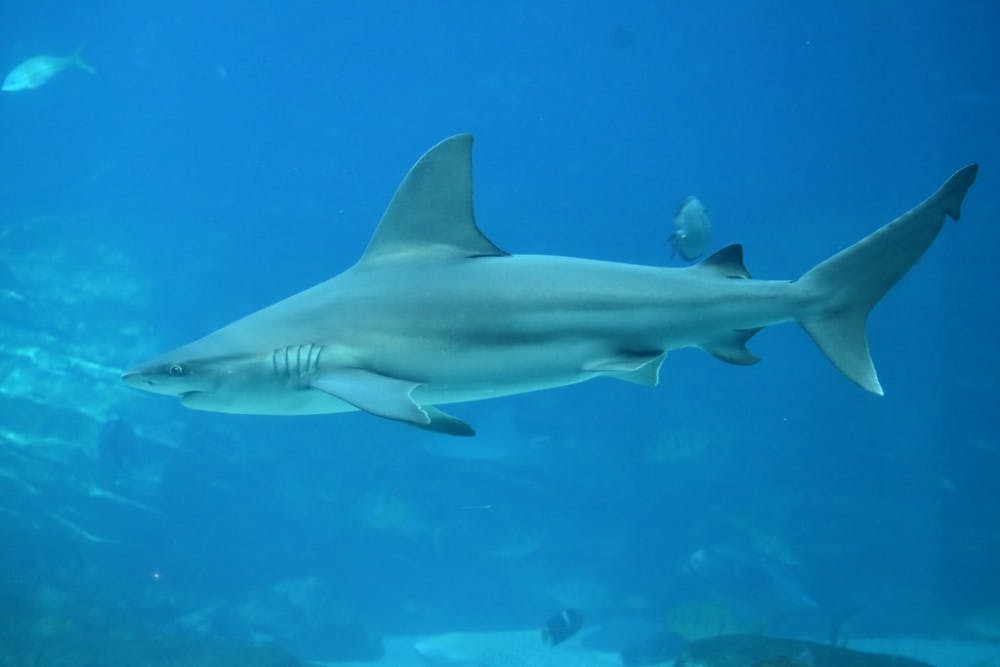An international team of researchers from institutions in the United States, Russia and Portugal recently achieved the feat of decoding the great white shark’s entire genome.
After doing so, the team proceeded to compare the great white’s genome to that of other species such as whale sharks and humans.
The researchers found the great white’s genome to be one and a half times larger than the human genome, but their most surprising finding was the presence of DNA sequence changes that are linked with a greater ability to maintain genome stability and consequently prevent the occurrence of cancer. The team identified these DNA sequence changes in genes that are known to minimize the damage sustained by DNA. In humans, the occurrence of cancer is tied to a decreased ability to maintain a stable genome because of DNA’s inability to minimize damage throughout the lifespan.
Mahmood Shivji, one of the co-directors of the study and director of Nova Southeastern University’s Save Our Seas Foundation Shark Research Center as well as Guy Harvey Research Institute, shared the results of his team’s findings.
“Not only were there a surprisingly high number of genome stability genes that contained these adaptive changes, but there was also an enrichment of several of these genes, highlighting the importance of this genetic fine-tuning in the white shark,” Shivji said in a recent press release.
The team also found a large proportion of transposons known as LINEs that were present in the great white shark’s genome, which is one of the largest found to date in vertebrates.
Michael Stanhope, the other director of the study from Cornell University College of Veterinary Medicine, elaborated on the potential function of LINEs in the genome.
“These LINEs are known to cause genome instability by creating double stranded breaks in DNA. It’s plausible that this proliferation of LINEs in the white shark genome could represent a strong selective agent for the evolution of efficient DNA repair mechanisms, and is reflected in the positive selection and enrichment of so many genome stability genes,” Stanhope said in a press release.
Previous research has indicated that within a species, an increase in body size and lifespan contribute to a higher risk of developing cancer. However, the analysis of the great white shark’s genome and its comparison to the whale shark’s genome suggests that this is not a rule that holds across species. The whale shark’s genome was also found to have the cancer-preventing genes found in the great white shark’s genome, which suggests that these creatures have developed adaptations to reduce their risk of cancer and support their large bodies and long lifespans.
Salvador Jorgensen, a senior research scientist at the Monterey Bay Aquarium and co-author of the study, talked about the implications of decoding the white shark’s genome.
“Decoding the white shark genome is providing science with a new set of keys to unlock lingering mysteries about these feared and misunderstood predators — why sharks have thrived for some 500 million years, longer than almost any vertebrate on earth,” Jorgensen said in a press release.
In addition to the cancer-preventing genes found in the great white shark, genes contributing to rapid wound healing were also found.
“We found positive selection and gene content enrichments involving several genes tied to some of the most fundamental pathways in wound healing, including in a key blood clotting gene,” Stanhope said. “These adaptations involving wound healing genes may underlie the vaunted ability of sharks to heal efficiently from even large wounds.”
Researchers believe that further investigation of this newly decoded genome might hold valuable information that could be translated into efforts to create similar cancer-preventing mechanism in humans.
“Genome instability is a very important issue in many serious human diseases; now we find that nature has developed clever strategies to maintain the stability of genomes in these large-bodied, long-lived sharks,” Shivji said. “There’s still tons to be learned from these evolutionary marvels, including information that will potentially be useful to fight cancer and age-related diseases, and improve wound healing treatments in humans, as we uncover how these animals do it.”
Additionally, the researchers in this study hope that the discovery of the value in the great white shark’s genome might motivate people to support the preservation of this species in years to come.





